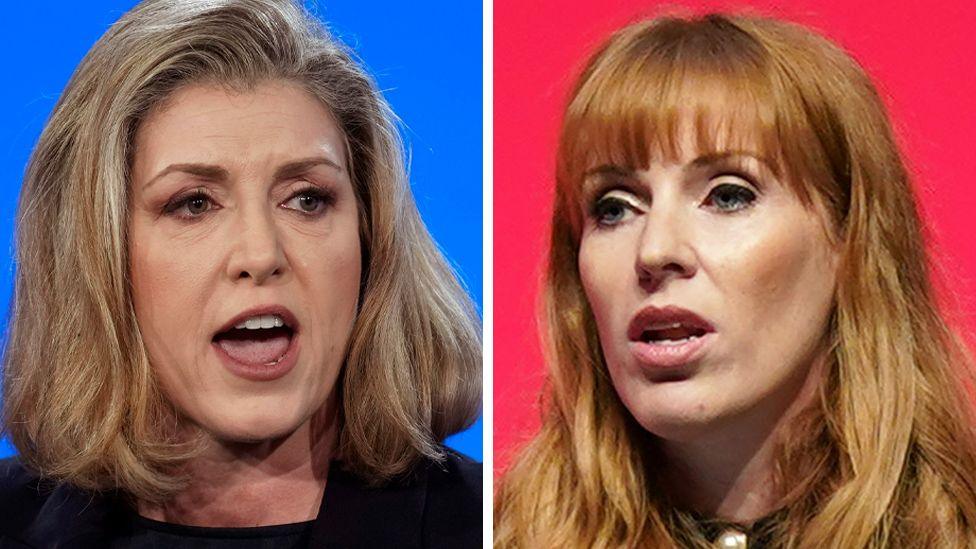Wimbledon - could voters here be switching sides?
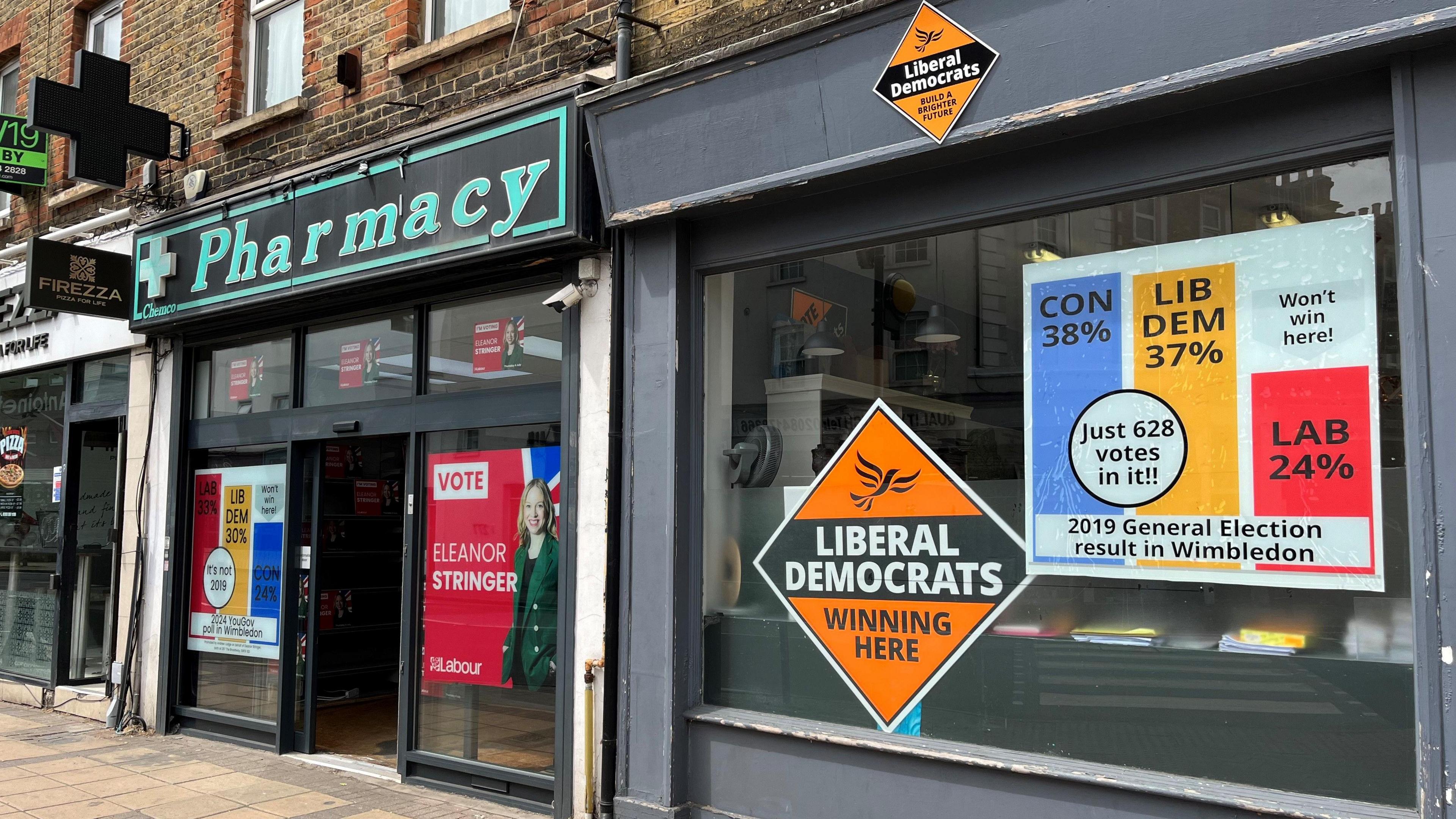
The Labour and Liberal Democrat HQs in Wimbledon are next door to one another
At a glance
BBC London political reporter Susana Mendonça has been to Wimbledon to get a sense of the mood ahead of the general election, on 4 July
She joined campaigners door-knocking on local issues in the south-west London constituency
It was won by the Conservatives in 2019 by a tiny margin
They have held the seat since 2005
- Published
A marginal seat is the kind of place where the political majority is tight and some voters are willing to switch sides. The constituency of Wimbledon in south-west London, is one such place.
Knocking on doors in Malden Manor, I joined the Conservative candidate hoping to replace the former Tory MP Stephen Hammond, who has stepped down.
Sporting a Team GB jacket, Danielle Dunfield-Prayero, who is a former British triathlete, tells me she is campaigning on local issues such as step-free access at local railway stations.
She brushed off speculation about the Conservatives' prospects here, saying: “I love a challenge in a competition and we’re having lots of fun speaking to residents, finding out what’s important to them.”
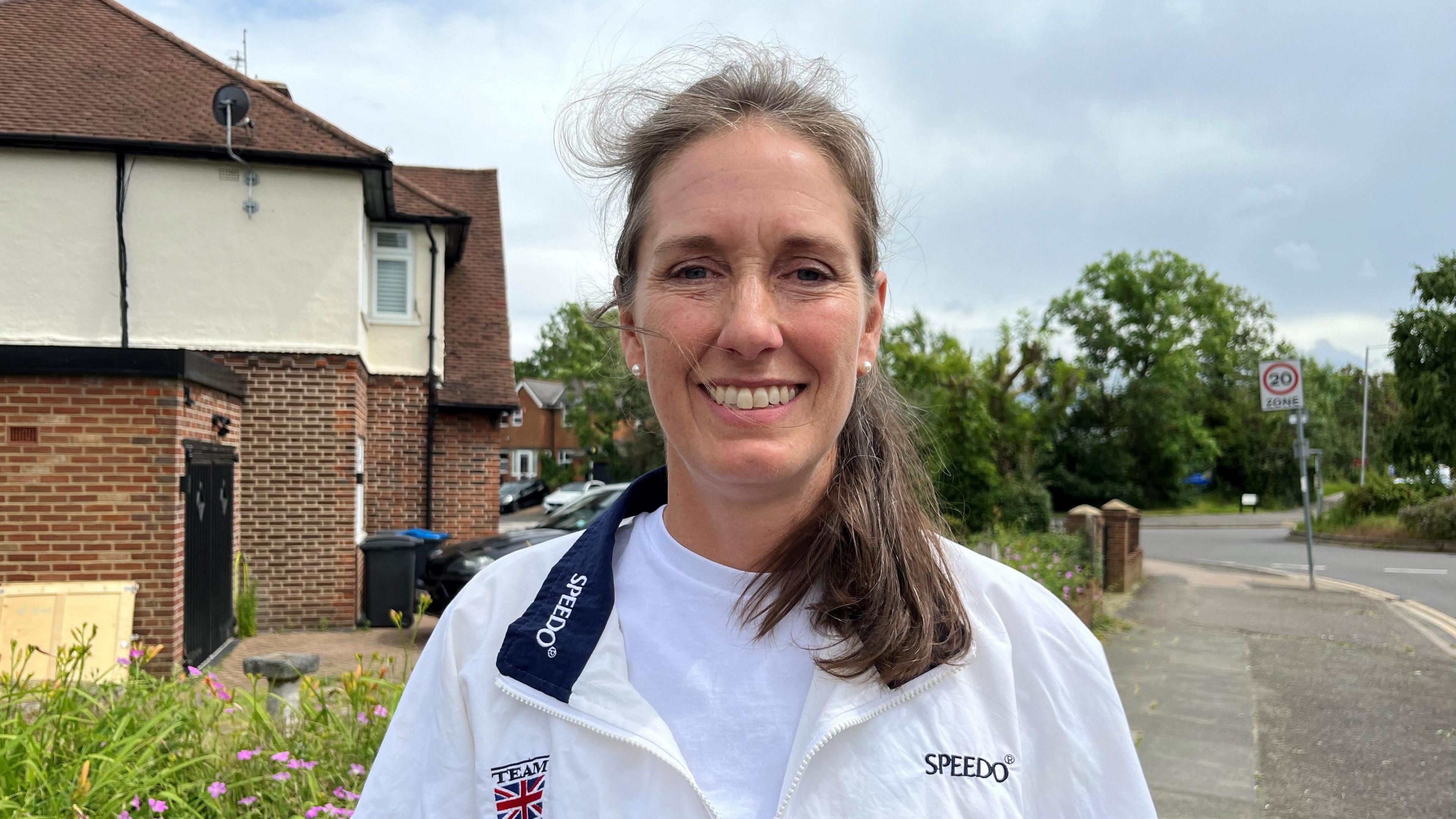
Danielle Dunfield-Prayero is hoping to secure a sixth consecutive general election victory for the Conservatives in Wimbledon
Chatting to people on the High Street, I hear about some of the issues important to voters here. Concern about the economic outlook is among them.
One man tells me: “I’d like to see more strong leadership, guidance towards how we’re going to solve our problems and [the] need for economic growth.” He added that he didn’t see political parties “showing much initiative or imagination” on the issue.
Concern about crime is also on the minds of some voters. A woman told me she was concerned about “safety, police on the street”.
The Conservatives have held this seat since 2005 when they took it from Labour, but at the 2019 General Election, voters in Wimbledon came close to electing a Liberal Democrat MP.
Rishi Sunak apologises for leaving D-Day events early, calling it a 'mistake'
- Published7 June 2024
The Conservatives held on by just 628 votes, as Mr Hammond was re-elected with 38.4% of the vote.
The Liberal Democrats were hot on their heels in second place, buoyed by an anti-Brexit vote in an area where the majority of people voted to remain in the European Union. Labour was pushed into third place with 23.7% of the vote.
Fast forward to 2024 and the political picture for the Conservatives here looks precarious.
The Tories lost council seats in the Wimbledon area to the Liberal Democrats in the local elections of 2022.
And boundary changes - aimed at ensuring all parliamentary seats have roughly the same population size - have made the political landscape tougher for the Tories, by bringing in areas that have been less traditionally Conservative-leaning.
In addition, the Tories will not have the potential advantage of fielding an incumbent because Mr Hammond decided to quit Parliament after nearly 20 years.
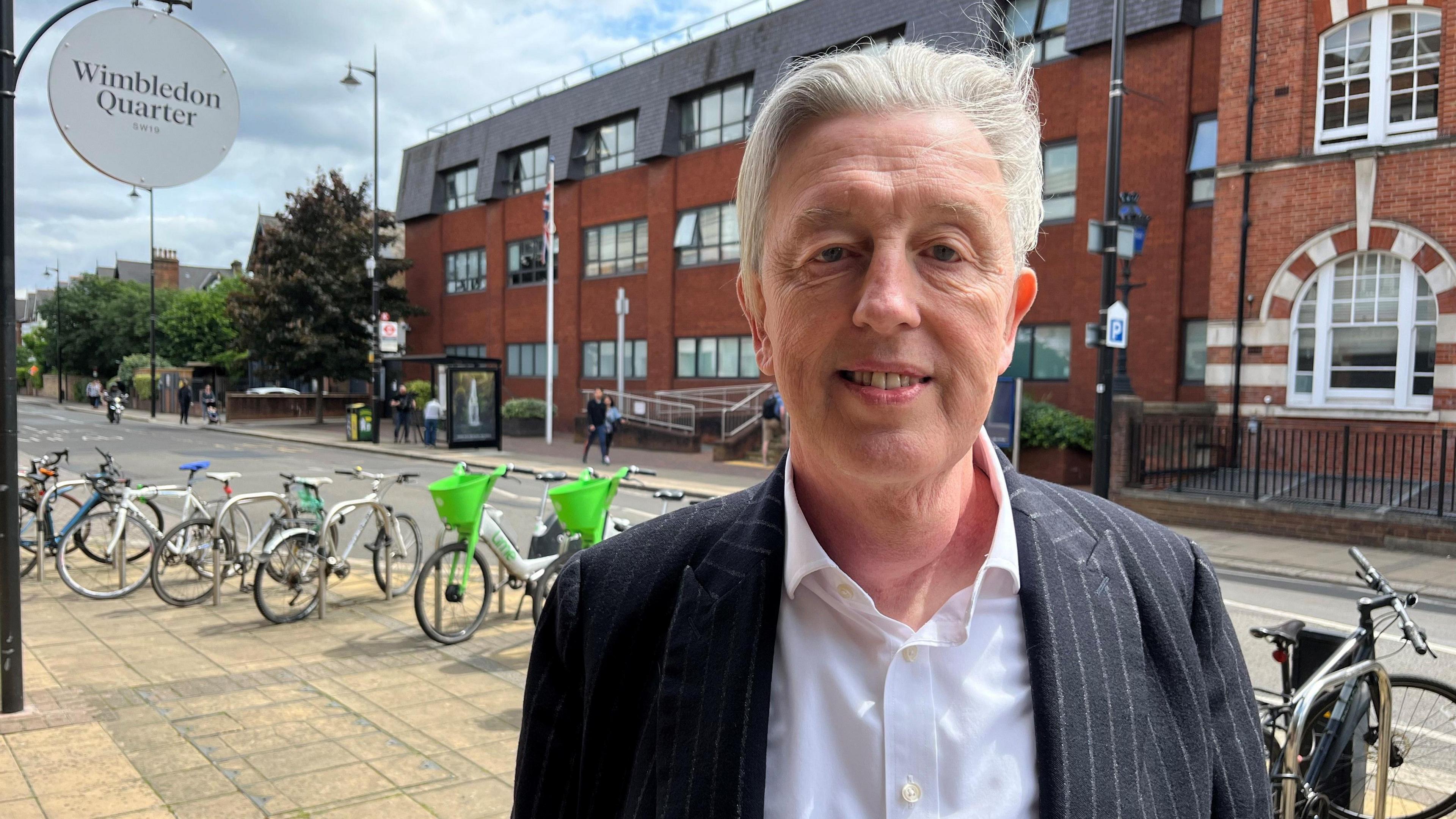
Paul Kohler, the Liberal Democrats' candidate, says voters are "very worried about the total failure of community policing"
Pipped at the post in 2019, the Liberal Democrat candidate Paul Kohler is back for a second go. He says policing is one of his top priorities, following his own experience of crime.
Mr Kohler was the victim of a brutal attack in a burglary at his home in 2014 that left him with severe facial injuries. He later became a councillor on Merton Council.
Meeting me outside Wimbledon police station - which he helped save from closure in 2018 after he took the Greater London Authority to court over plans to shut it - he told me he was still campaigning to secure the long-term future of the police station.
Mr Kohler said voters were "very worried about the total failure of community policing" in Wimbledon. He explained it was "particularly important” to him “because that’s what got me into politics in the first place, when officers from this police station saved my life 10 years ago when I was attacked in my own home."
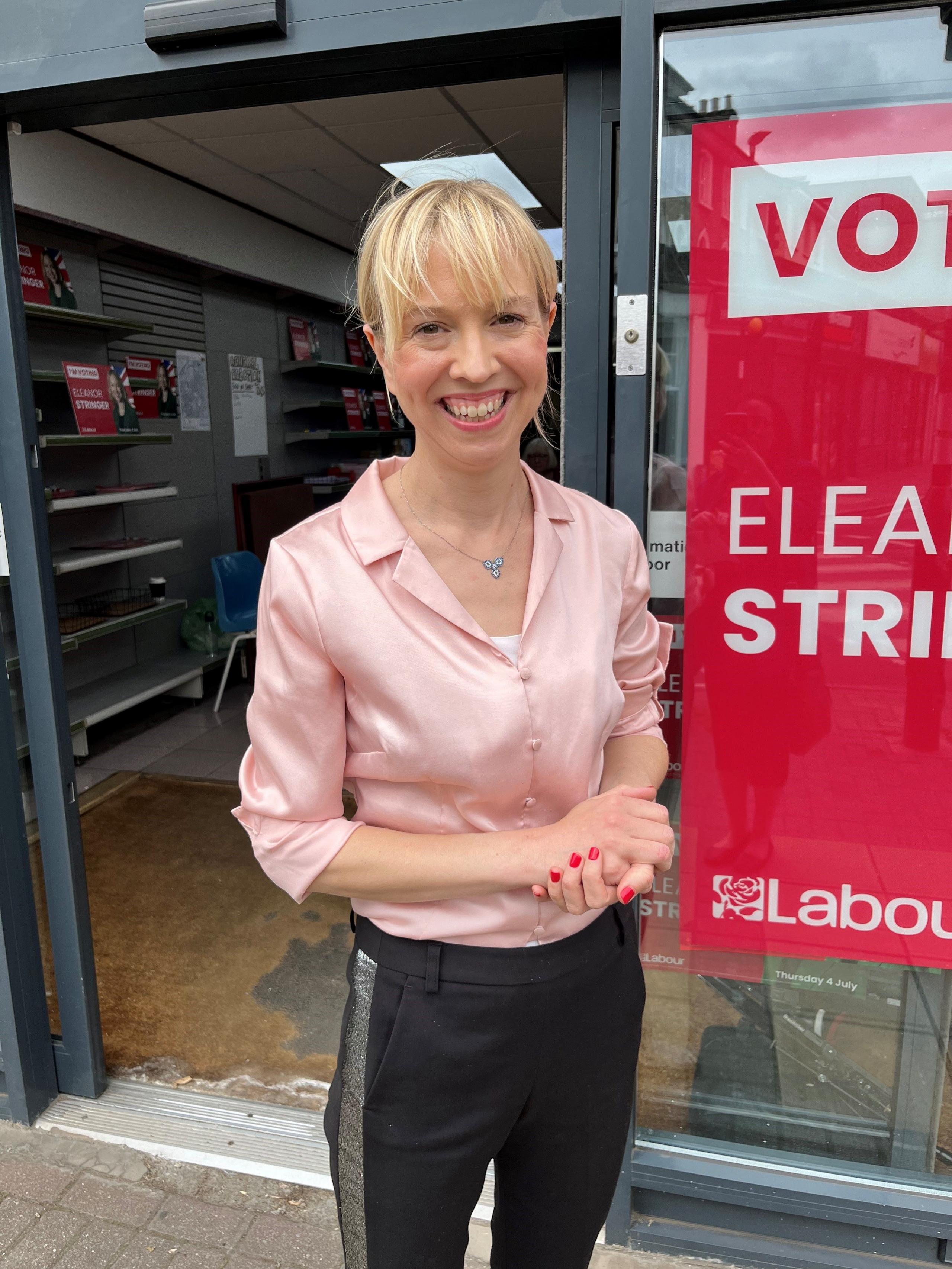
Labour's Eleanor Stringer says she is campaigning on the economy and the state of “crumbling” public services
Labour, which came third here last time but won the seat in the general elections of 1997 and 2001, has deputy leader of Merton Council Eleanor Stringer as its candidate.
In what’s been dubbed by some locally as the "battle of the bar charts", Labour recently surprised the Liberal Democrats and some local people when it moved its campaign headquarters into the disused pharmacy building next door to the Lib Dem campaign office. Bar charts in the windows conflict with those presented by the Liberal Democrats, who have accused Labour of “playing political games” with the move.
Ms Stringer, who told me she was campaigning on the economy and the state of “crumbling” public services, laughed off suggestions that her campaign office had moved in next door to the Lib Dems in order to spy on the competition.
She said: “We know that other parties have been putting out information that’s half a decade old, so we wanted to really clearly present some information from more recently which shows the level of swing from the Conservative vote [that] is coming over to Labour.”
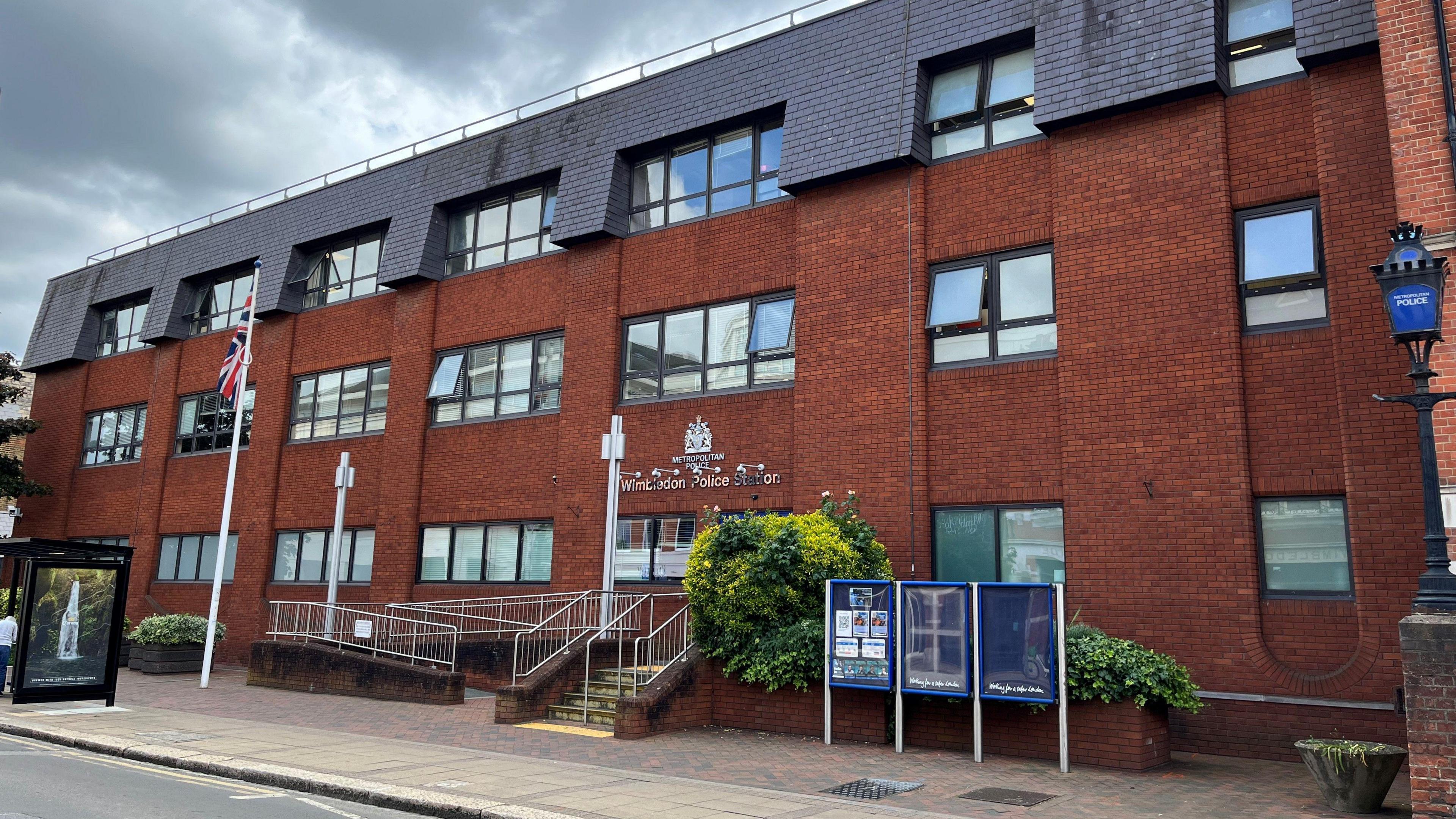
Local policing is a concern for residents in Wimbledon
Across the road from the All England Lawn Tennis and Croquet Club, the home of the Wimbledon tennis championships, I heard about another issue concerning many living in this constituency.
Plans by the All England Club to build new facilities on Wimbledon Park have proved hugely controversial. The proposals have been referred to the Greater London Authority (GLA) after Merton Council granted planning permission but Wandsworth Council refused it.
Showing me a map of the plans, Christopher Coombe, from the Save Wimbledon Park campaign, said he wanted the next MP to try to block the proposal.
He explained: “This is probably the biggest thing that is ever likely to be at risk of damaging Wimbledon forever, and so it’s the biggest thing in this election locally, no question”.
It will be just one of the issues voters in Wimbledon will be considering ahead of polling day.
The other declared candidates for Wimbledon are: Rachel Brooks for the Green Party, Ben Cronin for Reform UK and Aaron Mafi for the Workers Party of Britain.
A full list of candidates will be available after nominations close.
Listen to the best of BBC Radio London on Sounds and follow BBC London on Facebook, external, X, external and Instagram, external. Send your story ideas to hello.bbclondon@bbc.co.uk, external
More on the upcoming general election
- Published2 July 2024

- Published29 April
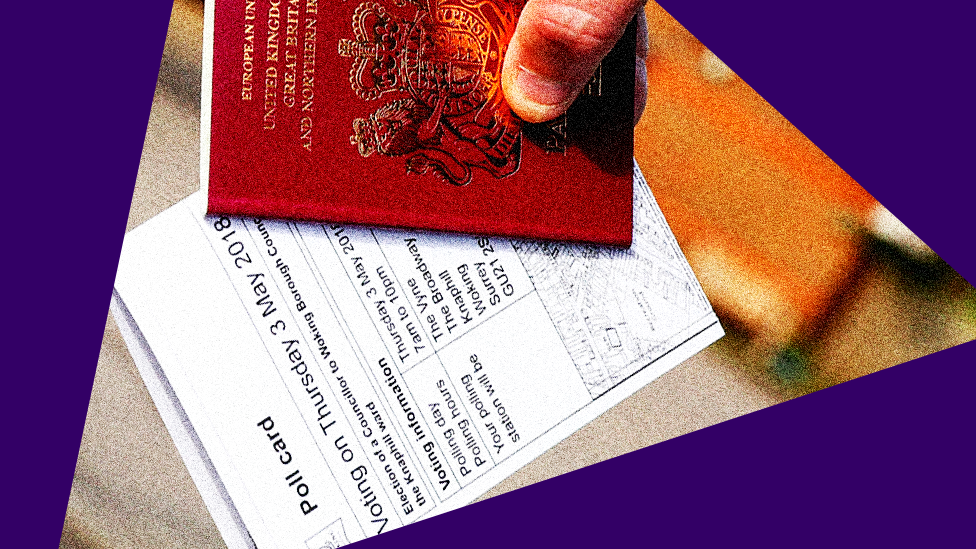
- Published5 June 2024
